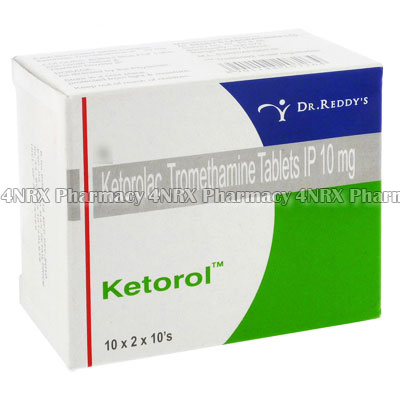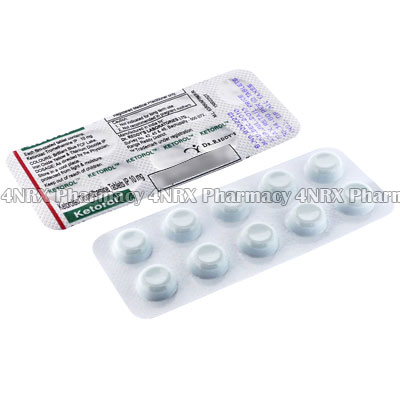 |
Home  General Health General Health  Ketorol (Ketorolac) Ketorol (Ketorolac) |
|
|||||||||
|
|
Ketorol (Ketorolac)
What is Ketorol (Ketorolac) used for? Ketorol (Ketorolac) is an oral non-steroidal anti-inflammatory drug (NSAID) prescribed as a short-term treatment for pain and irritation following surgery. The medication operates by preventing the action of enzymes in the body that cause the pain, swelling, and irritation associated with these conditions. Your doctor may also recommend its use for the treatment of other unlisted conditions. How should I use Ketorol (Ketorolac)? Ketorol (Ketorolac) should always be used according to your doctor`s instructions to get the safest and most effective results from treatment. One tablet is normally administered every four to six hours, but your individual directions will depend on your age, weight, health condition, and the severity of your symptoms. These should be swallowed with a large glass of water and may be taken on an empty stomach, although a meal or snack is recommended prior to use if you experience nausea. Do not crush, chew, or split the tablets prior to use to avoid unintentionally destroying or altering the effects of their contents. Ask your doctor or pharmacist any questions you have about the medicine to ensure the correct administration. What are the side effects of Ketorol (Ketorolac)? Ketorol (Ketorolac) may cause side effects in some patients such as:
Stop using the medication and contact your doctor immediately if any serious side effects occur such as irregular heartbeats, chest pain, trouble breathing, fever, flu symptoms, unusual swelling, sensitive skin, easier bruising, coughing up a substance resembling coffee grounds, darkened urine, discoloured stools, jaundice, or seizures. These conditions may require lower doses, reduced frequency of administration, or emergency medical attention in serious cases to prevent further health complications from occurring. Please Note Ketorol (Ketorolac) should not be used to treat patients who are pregnant, breastfeeding, under the age of sixteen, currently taking other NSAID medications, or who have asthma, an active peptic ulcer, porphyrias, clotting disorders, dehydration, intracranial haemorrhage, ulceration, kidney failure, liver failure, or uncontrolled heart failure. Also inform your doctor if you are a smoker, elderly, or have diabetes, a history of allergies, heart failure, hypertension, inflammatory bowel disease, connective tissue diseases, cerebrovascular disease, angina, peripheral arterial disease, controlled heart failure, decreased liver function, or decreased kidney function. These conditions may cause unexpected health problems requiring adjustments to your regimen. Strictly use Ketorol (Ketorolac) as prescribed and follow all instructions provided by your doctor. Safe, suitable, and optimum dosage can vary and is dependent on the patient`s health and medical history, as well as the condition you are treating. Ketorol (Ketorolac) may not be safe or suitable for all patients. Always ensure your doctor is informed if you are pregnant or breastfeeding, using any other type of medication (including non-prescription medicine, vitamins, and supplements), as well as if you have any allergies, other illnesses, or pre-existing medication conditions. Seek immediate medical attention or proceed to your nearest accident and emergency department if you suffer a hypersensitive or allergic reaction. Symptoms usually present during a reaction of this nature include difficulty breathing or swallowing, swelling of the limbs or face, tight chest, hives, and skin rashes. 

|
||||||||||||||||||